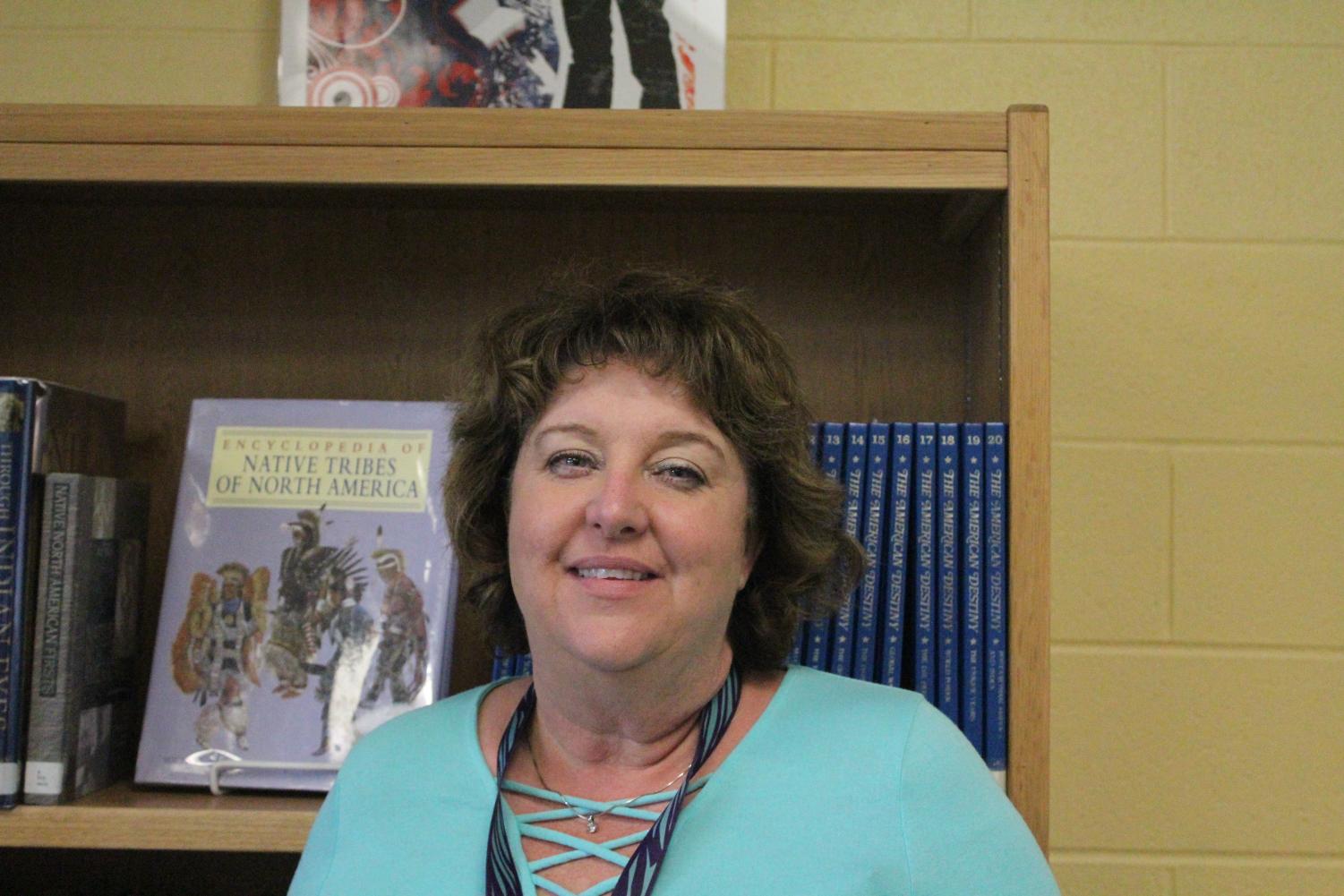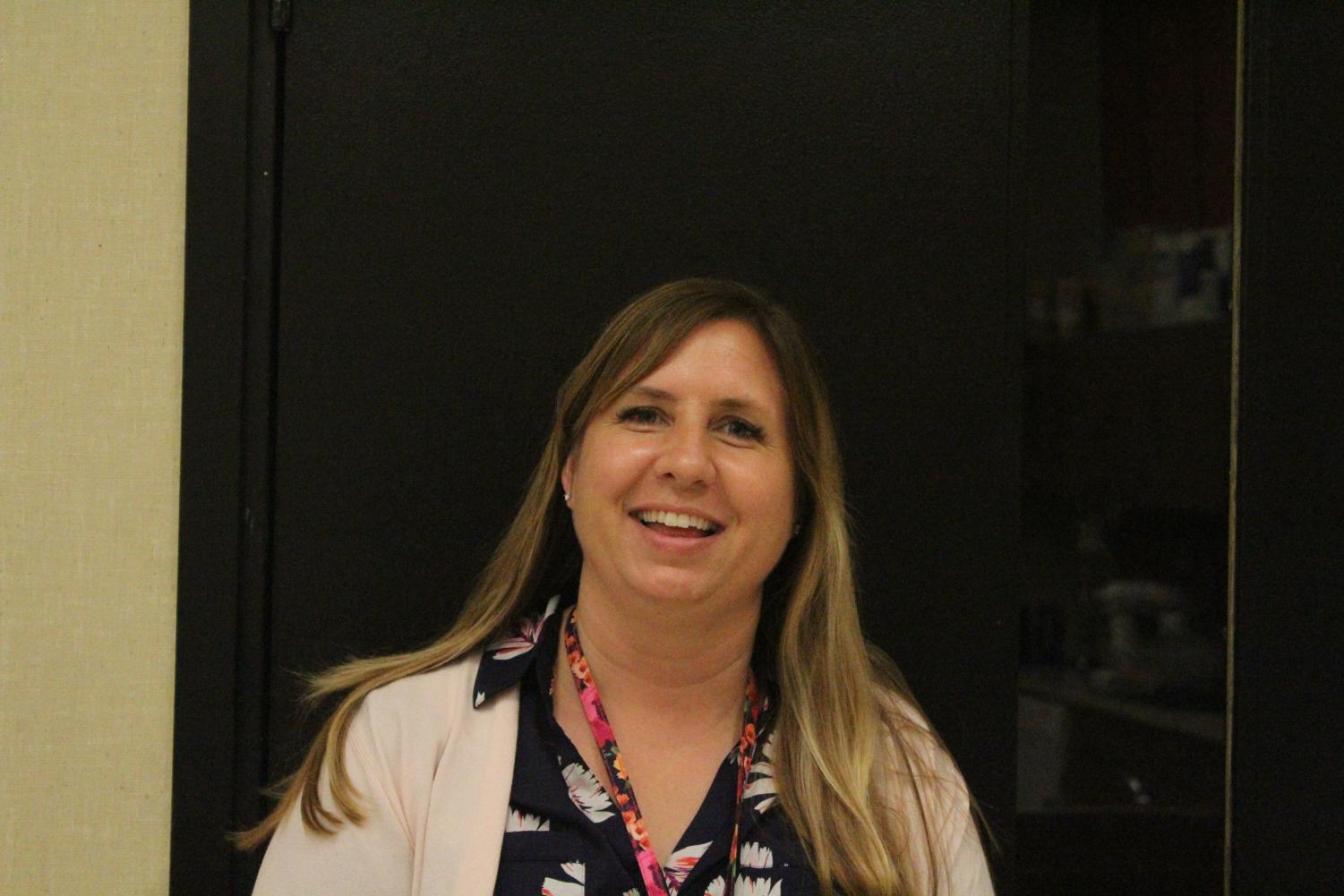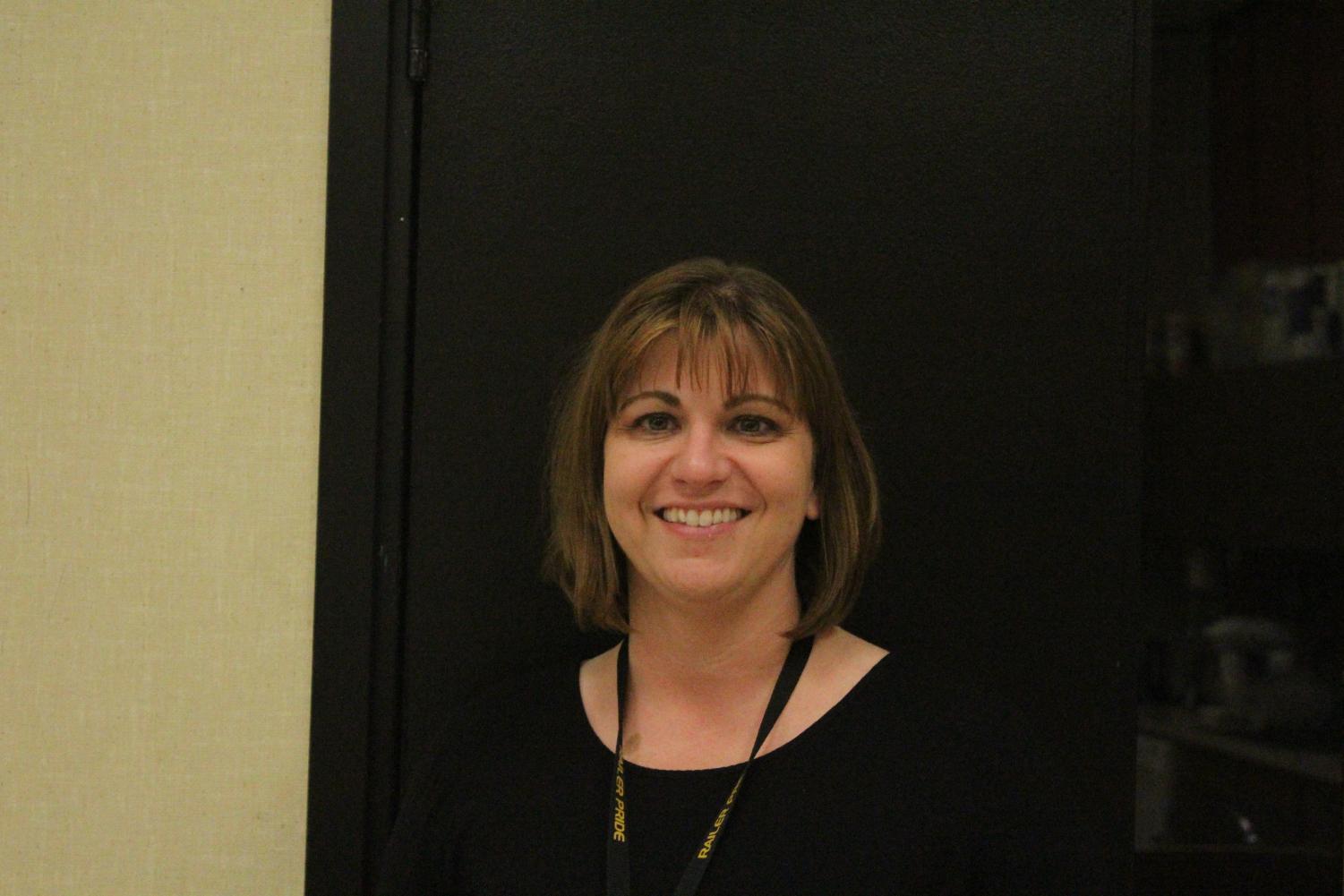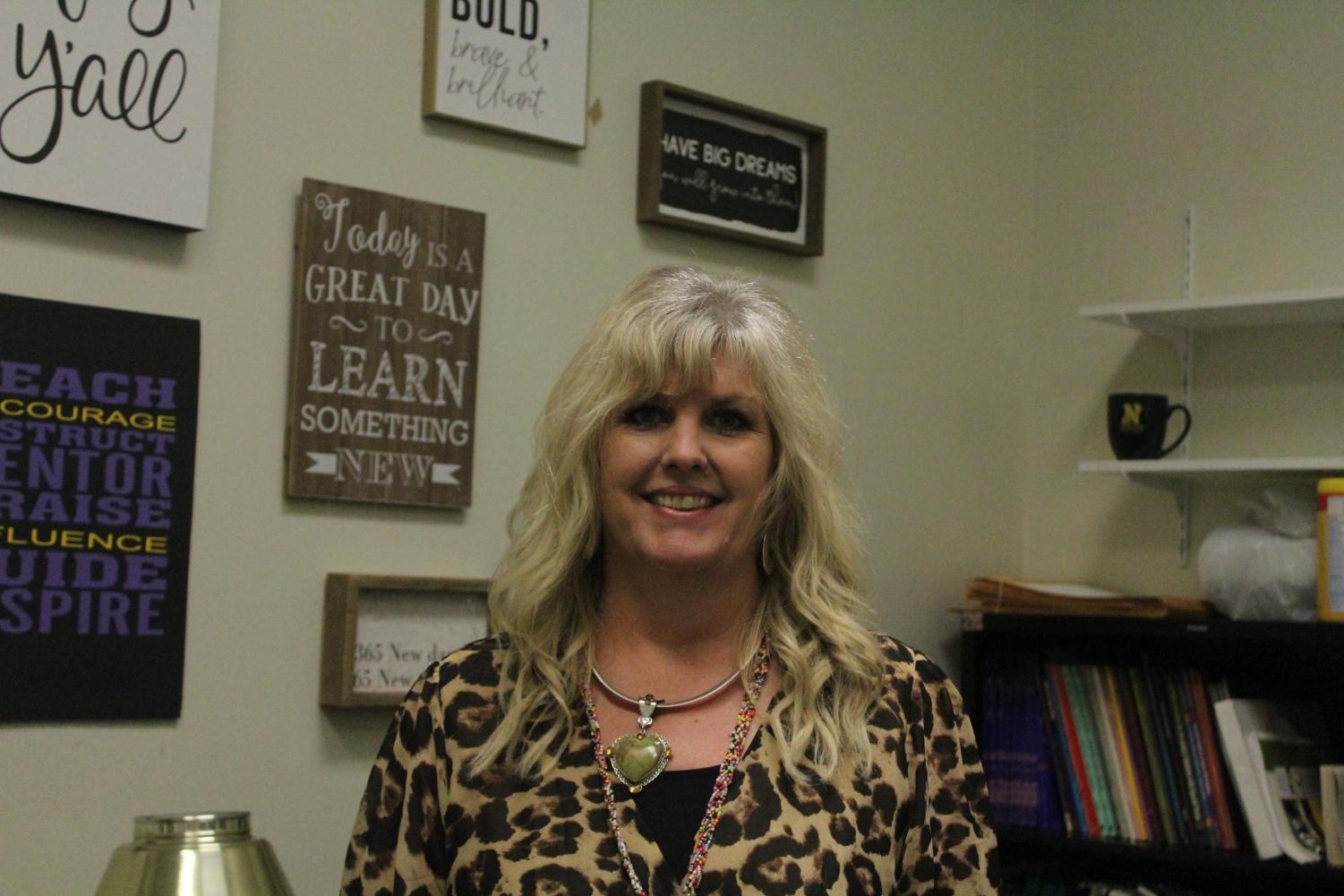Quick Q&A with new support service staff
Sharon Nowak, Interrelated Teacher
Q: What does it mean to be an interrelated teacher?
A: That means that you teach core subjects, but in a smaller setting. So like, some of the science I teach, or even some of the math I teach might be what you have in your class. Instead of 25 kids, I’ve got, say, five or six. And what you guys do for homework, we’ll probably do in class as a group, you know, so it’s teaching core stuff. It is just smaller classrooms.
Q: What would you say is the most rewarding thing about being a teacher?
A: Well, especially in my situation, I see it more clearly than some teachers because I have such small groups, I see the growth, I see them learning things that they never did learn before. Whether it’s just now their time to learn it. You know, they’re just now mature enough to want to learn it. But, I do get to see the growth more quickly and more often than a teacher that has many, many more students.
Q: So what inspired you to become a teacher?
A: Years ago, when I was 21 years old, I worked in a large restaurant and I met a young guy, he’s about my age, nice looking, nice kid. You can tell that took me a while to figure out he couldn’t read. I thought he just couldn’t read my sloppy waitress handwriting, you know? So I thought he just didn’t understand our shorthand of writing. But finally, after a few days, I realized that he couldn’t read at all. And I just remember thinking that I could probably do a better job than that. I could probably get a kid through school better than that. And so that made me think, well, you know, maybe they do need people like me. You know, because I was on a business track thinking I was gonna, just go into some type of business. It’s funny you asked that, because that really is kind of that turning point. I think it’s really interesting. I didn’t know that a certain amount of kids get to adulthood, and they don’t know how to read.
Michelle Erons, IDD Teacher

Q: How would you say your teaching style is different from other teachers?
A: I really enjoy teaching my kids in small groups, and I feel like they learn a lot in small groups. So a lot of times my classes are just broken up into rotations.
Q: Do you have just one class? Or is it several throughout the day?
A: So we teach every subject from their math or reading, their social studies, their science and their life skills extending off campus. Now, some of our kids do go out, like some of them will go to interrelated classes, and then some of them will go on campus for work study. Some of them will go to ceramics; it just depends on where that students at.
Q: What are some challenges you have faced with teaching in your department?
A: I think that our numbers continue to grow. So there are more and more kids out there with disabilities that need the extra help, and there’s not enough special ed teachers out there. So numbers in classrooms are higher. At NHS, they’re a lot lower than classes I’ve had before. So that’s a good thing here at the high school. And then the kids are all at different levels. We have some kids that can hardly read, and then we have other kids that are reading like an eighth grade levels. Their abilities and their levels are very different, and they’re all in the same room.
Q: What is a structured classroom? How is that different from other classes?
A: With structure, they have to align things visually, and know what’s going on in the classroom. So as we build our program here at the high school, we have to have a lot more visuals so they can see what they’re doing next. They have to a lot of routine, a lot of repetition. So a lot of times they’re learning the same skills over and over and over until they get it and then they’re repeating it.
Michelle Schrag, IDD Teacher

Q: How would you say your teaching style is different from other teachers?
A: Well, we have 17 students each with different needs and styles. So we had to figure out 17 different ways to teach the same thing.
Q: What’s the most rewarding thing about being a teacher?
A: Just seeing the students grow as learners and having them get what they’re trying to work so hard for.
Q: What are some challenges you faced with teaching in your department?
A: Really just learning each student’s style and their individual needs. It’s quite a challenging thing.
Q: What inspired you to become a teacher?
A: Well, growing up with a sister who was severely special needs, I’ve always had a heart for this build, and so it just kind of settled later in life. That’s what I wanted to do.
Traci Hoagland, Transition Coordinator

Q: If you aren’t teaching this year, what do you do?
A: I do transition coordination, which means I help kids transition from high school to the work environment.
Q: What is the most rewarding thing about being a teacher?
A: Just seeing kids growing, and especially at high school age, them going into adulthood and going into the real world and being successful, and enjoying life basically.
Q: What are some of the challenges with teaching?
A: Behavior, respect, I think that’s a big challenge nowadays. Just not wanting to do what they’re supposed to do.
Q: What has inspired you to become a teacher?
A: Well, I had a couple good mentors when I first started out. I had no desire to be a teacher, none at all, and when I got into it, I was a para at first, and I had super mentor teachers that I worked with, and it just opened my mind into helping kids be successful, not just in school, but in life.
Olivia Lyles, Speech Language Pathologist
Q: What exactly does a speech pathologist do?
A: Anything that deals with communication. At Walton, I do a lot of articulation. But we do a lot of language, helping with grammar keys, social skills, how to decide what is appropriate to say during a conversation, body language, stuttering and problems swallowing all fall under speech. You can go education, you can go medical, you can work with anyone.
Q: Why did you go the education route?
A: I wanted to be back in my community. I thought I was going to medical but I think they gave me all the cutest kids on purpose, and now I’m here.
Q: What inspired you to become a speech pathologist?
A: That is a great question. It started as pre physical therapy, but then I got bored. So I took an aptitude test and speech pathology was on there. My grandparents have ties to the Walker Scottish Rite center in St. Louis which is a speech clinic and then my aunt had a traumatic brain injury and she received speech services. So it was a little bit of a family history and then it showed up as something I would probably be good at and I figured why not. I fell in love with the body from the neck up.
Q: What is the most rewarding thing?
A: I think when a student gets excited about something that they did. Like meeting their goal. The first time they get an ‘r’ right, the look on their face is priceless. That look of triumph. That look of ‘Oh my god I just did it’. It’s one of the best things. Everything else can kind of go by the wayside sometimes but that’s pretty cool.
